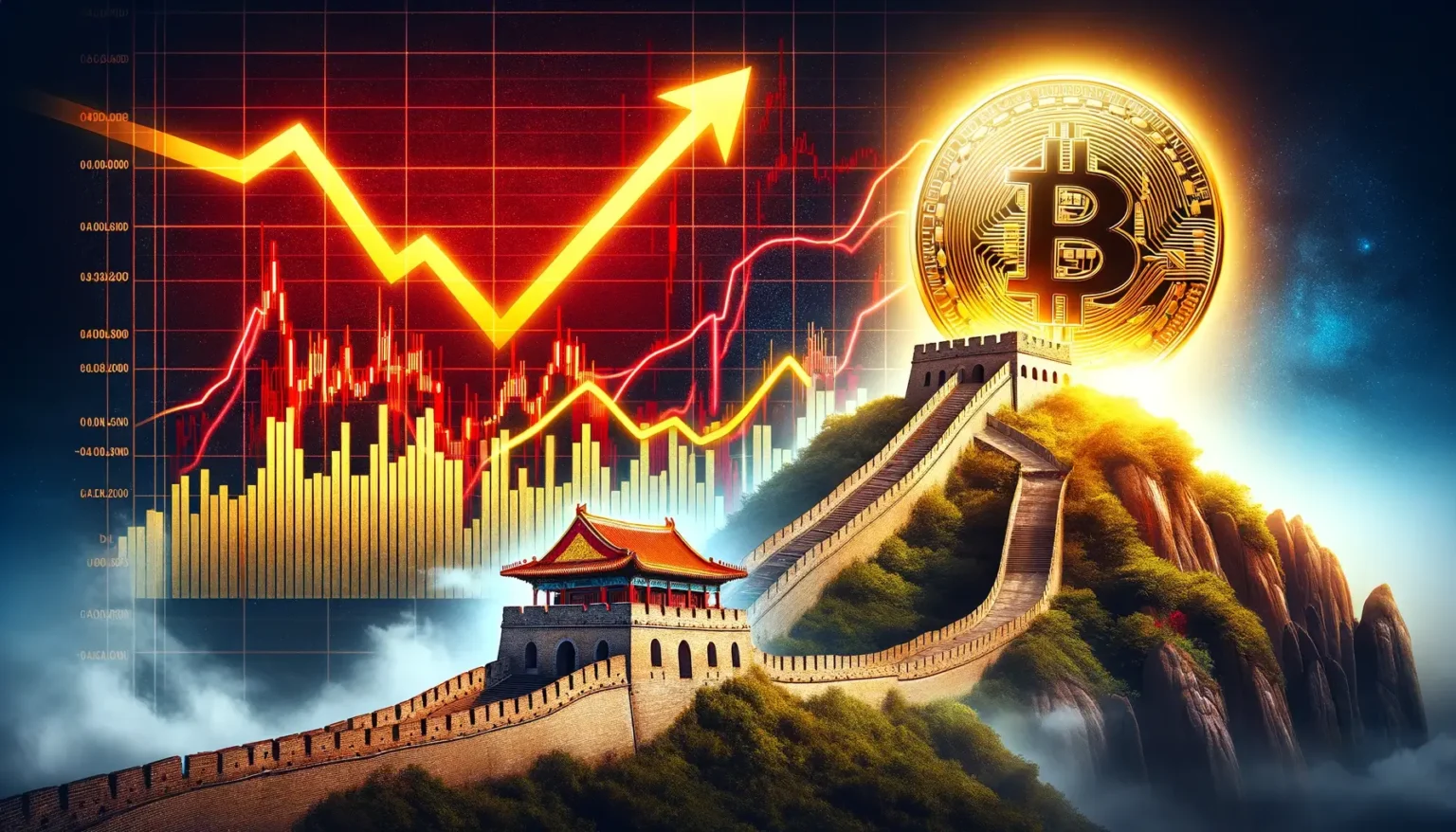Chinese stock markets are bleeding red, while the Bitcoin it banned rockets to new highs, leaving us to wonder if there’s a connection between the two.
On Monday, the CSI 300, which tracks China’s top companies, dipped 0.6%, and the Hang Seng index slid 0.4% in Hong Kong.
Over the same period, Bitcoin exploded by 3.6%, hitting an unprecedented $106,493. It’s the biggest rally since “crypto president” Donald Trump’s victory in the U.S. election triggered a bull run.
China’s retail sales growth in November slowed to 3%, well below expectations, while real estate investment continued to plummet. Policymakers had just promised to revive domestic demand, but the numbers tell a different story.
America Determined To Lead In Crypto
Since Trump’s win, BTC has gained more than 50%, climbing to levels once thought impossible. His plan to create a national Bitcoin reserve, akin to the country’s strategic oil reserve, has made almost everyone bullish. The president recently declared that:
“We’re going to do something big with crypto because we’re not letting China or anyone else take the lead.”
But this competition seems very one-sided as China continues to double down on its anti-crypto stance. Back in 2021, Beijing banned all crypto-related transactions, calling them illegal.
The People’s Bank of China has been relentless, repeatedly emphasizing that Bitcoin and its counterparts have no place in the Chinese financial system.
Despite whispers of potential changes in policy, nothing official has materialized. Hong Kong, however, has become a loophole, as the city courts crypto businesses under its semi-autonomous status.
China’s Weak Economy Adds To The Pressure
November’s economic data does little to inspire confidence in China’s recovery. As mentioned, retail sales, which grew by just 3% year-on-year, missed forecasts of 4.6%. This is a sharp slowdown from October’s 4.8% growth, which had been boosted by early Singles’ Day shopping promotions.
Analysts point to a lack of consumer confidence and a property market that’s still in free fall.
Real estate investment, a critical driver of China’s economy, shrank by 10.4% from January to November. This decline deepened from the 10.3% drop reported the previous month.
With home prices falling and no signs of a turnaround, Beijing’s property woes are becoming harder to ignore. Fixed asset investment was another disappointment, rising just 3.3% this year through November, below the 3.4% analysts had expected.
Industrial production, one of the few bright spots, rose by 5.4% in November, slightly beating expectations.
But even this isn’t enough to offset the broader slowdown. Economists are skeptical about the effectiveness of recent stimulus measures, describing them as “short-lived.”
The National Bureau of Statistics admitted in a statement that while the economy shows signs of improvement, domestic demand remains weak, and businesses are still facing significant challenges.
Could Trump Inspire China?
China used to dominate Bitcoin. It was the epicenter of mining and trading before the 2021 crackdown. By banning crypto, Beijing handed that lead to the U.S., where pro-crypto policies are now flourishing.
Its loss is America’s gain. The irony is rich: a country that once controlled over 70% of Bitcoin mining now watches from the sidelines as its rival profits.
A lot of analysts seem to think that Trump could inspire China’s Xi Jinping to lift his ban, especially as the two are slowly rekindling their friendship.
Though perhaps leaving it alone will be the best thing for the boys. They don’t need yet another thing to fight about.
Meanwhile, Russia’s Vlad Putin has already made his decision. He’s signed a law that makes Bitcoin legal property in the country. That means any business or person can accept crypto as payment for anything.
Some analysts, though, are concerned that if all these countries get deep into Bitcoin, it would tumble the global economy. And realistically speaking, from an economic point of view, they might be right.







